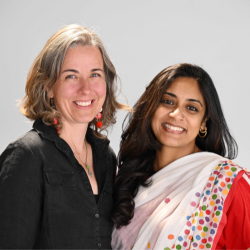-
Study
-
Undergraduate
- UCAS Clearing & Confirmation 2025
- Application Guides
- UCAS Exhibitions
- Foundation Years
- School & College Outreach
- Information for Parents
-
Postgraduate
- Application Guide
- Postgraduate Research Degrees
- Flexible Learning
- Change Direction
- Register your Interest
-
Student Life
- Students' Union
- The Hub - Student Blog
- Accommodation
- Northumbria Sport
- Support for Students
-
Learning Experience
- Real-World Learning
- Research-enriched learning
- Graduate Futures
- The Business Clinic
- Study Abroad
-
-
International
International
Northumbria’s global footprint touches every continent across the world, through our global partnerships across 17 institutions in 10 countries, to our 277,000 strong alumni community and 150 recruitment partners – we prepare our students for the challenges of tomorrow. Discover more about how to join Northumbria’s global family or our partnerships.
View our Global Footprint-
Quick Links
- Course Search
- Undergraduate Study
- Postgraduate Study
- Information for Parents
- London Campus
- Northumbria Pathway
- Cost of Living
- Sign up for Information
-
International Students
- Information for International Students
- International Events
- Application Guide
- Entry Requirements and Education Country Agents
- Global Offices
- English Requirements
- English Language Centre
- International student support
- Cost of Living
-
International Fees and Funding
- International Undergraduate Fees
- International Undergraduate Funding
- International Masters Fees
- International Masters Funding
- International Postgraduate Research Fees
- International Postgraduate Research Funding
-
International Partners
- Agent and Representatives Network
- Global Partnerships
- Global Community
-
International Mobility
- Study Abroad
- Information for Incoming Exchange Students
-
-
Business
Business
The world is changing faster than ever before. The future is there to be won by organisations who find ways to turn today's possibilities into tomorrows competitive edge. In a connected world, collaboration can be the key to success.
More on our Business Services -
Research
Research
Northumbria is a research-rich, business-focused, professional university with a global reputation for academic quality. We conduct ground-breaking research that is responsive to the science & technology, health & well being, economic and social and arts & cultural needs for the communities
Discover more about our Research-
Quick Links
- Research Peaks of Excellence
- Academic Departments
- Research Staff
- Postgraduate Research Studentships
- Research Events
-
Research at Northumbria
- Interdisciplinary Research Themes
- Research Impact
- REF
- Partners and Collaborators
-
Support for Researchers
- Research and Innovation Services Staff
- Researcher Development and Training
- Ethics, Integrity, and Trusted Research
- University Library
- Vice Chancellors Fellows
-
Research Degrees
- Postgraduate Research Overview
- Doctoral Training Partnerships and Centres
- Academic Departments
-
Research Culture
- Research Culture
- Research Culture Action Plan
- Concordats and Commitments
-
-
About Us
-
About Northumbria
- Our Strategy
- Our Staff
- Our Schools
- Place and Partnerships
- Leadership & Governance
- University Services
- History of Northumbria
- Contact us
- Online Shop
-
-
Alumni
Alumni
Northumbria University is renowned for the calibre of its business-ready graduates. Our alumni network has over 250,000 graduates based in 178 countries worldwide in a range of sectors, our alumni are making a real impact on the world.
Our Alumni - Work For Us
What will I learn on this module?
You will learn about the planning and development process in an urban context focusing on the evaluation of projects including the planning context, viability assessment and development appraisal. The module aims to help you understand the complex social, economic and physical environment and market conditions within which planning and development take place. During this module you will develop your knowledge of the management of the planning process, the development process, acquisition of development sites and sources of finance for development. Through the module you will engage with real world case studies which will allow you to recognise the crucial role of effective planning and development practice to success development.. You will be introduce to the key features of sustainable urban development (SUD) which you will use to prepare and submit a critical review of a contemporary example of sustainable urban development (SUD).
Indicative syllabus
• Planning and development process – key planning policies at national and local levels.
• The fundamentals of Sustainable Urban Development (SUD)
• Urban development, master-planning, place shaping, development control and management
• Contemporary UK Planning policy: National Planning Policy Framework and Planning Guidance
• Negotiating planning and viability: planning conditions and obligations
• Market research, site evaluation, acquisition and disposal
• Urban regeneration, , heritage and conservation
• Real estate development finance and funding
You will develop, throughout this module, academic and professional skills relating to the evaluation of policy; effective communication; self-direction and personal responsibility and appreciate social and ethical aspects of the planning and development process.
How will I learn on this module?
The module is delivered entirely online via our electronic learning portal (elp). You will interact with a range of learning materials on the module site. The module home page provides you with quick access to detailed information about the structure of the module in an interactive, easily accessible format. The teaching materials support your learning through a blended learning approach making extensive use of case studies to situate your learning in the real world of planning and development practice. Sessions deliver flexible, interactive learning materials, accessible in a variety of formats such as audio presentations, video clips, podcasts and hard copies. Tasks to extend and test your learning are interspersed within the learning materials for each topic. A range of different tasks, with formative feedback, are aimed at supporting your learning style and developing the knowledge and information you will need for each assessment. In addition to this you will be encouraged to utilise peer to peer support opportunities through the use of vle supported platforms for interaction or, if you choose to, external student supported platforms. Each session is supported by reading accessed through the electronic reading list.
How will I be supported academically on this module?
You will develop as an autonomous, self-motivated learner within a supportive distance learning environment. You will be introduced to the module by the module tutor in an introductory video/webchat. The online module sessions and interactive tasks form the cornerstone for supporting you during your study. Academic support is available from the teaching team and each session will include the opportunity to direct questions directly to the tutor. In advance of each assessment an audio presentation will be uploaded to support you in your preparation for the assessment. This guidance will be synchronised with a staged process of formative assessments to allow you to monitor your learning and prepare you for submission of your assessed work. Focused academic support coupled with timely formative and summative feedback should enable you to meet your full academic potential within this module. You will also be provided with access to a range of industry standard resources/data to allow you to fully research the commercial property or housing market of your choice.
What will I be expected to read on this module?
All modules at Northumbria include a range of reading materials that students are expected to engage with. Online reading lists (provided after enrolment) give you access to your reading material for your modules. The Library works in partnership with your module tutors to ensure you have access to the material that you need.
What will I be expected to achieve?
Knowledge & Understanding:
1. Analyse complex urban problems and apply comprehensive planning knowledge to the housing and surveying profession
2. Analyse and apply the real estate development process to the evaluation of potential development sites, assessing the sustainability of development projects.
Intellectual / Professional skills & abilities:
3. Evaluate alternative forms of development finance and methods of acquiring and disposing of development sites.
4. Critically analyse the methods of validating the resilience and sustainability of an example of sustainable urban development (SUD)
Personal Values Attributes (Global / Cultural awareness, Ethics, Curiosity) (PVA):
5. Demonstrate the capacity for independent, evidence based and research led, analysis and decision making in relational to real world planning and development scenarios.
How will I be assessed?
Formative assessment
There will be series of seven short formative individual tasks, throughout the module and three live webinars to allow you to monitor you learning, and provide formative feedback build toward your summative assessments.
The formative assessments enable you to conduct independent research and gather additional information about key elements of the planning and development process that you will cover in the learning materials (for details see What will I learn on this module?). Breaking down the assessments into a series of smaller formative tasks creates the opportunity for you to receive specific feedback at regular intervals during the module from tutors, which will help you to evaluate your progress and to identify areas for improvement.
Summative assessment
There is one assessment a 4,000 word report with supporting images which accounts for 100% weighting for this module:
The assessment for this module will be a report which provides a critical review of an exemplar example of sustainable urban development (SUD) . This is worth 100% of the module and assesses MLOs 1, 2, 3, & 5.
Pre-requisite(s)
None
Co-requisite(s)
None
Module abstract
Planning and Development takes place within complex social, economic and physical environments and spatially contingent market conditions. You will learn about the planning and development process in an urban context via the comprehensive evaluation of sustainable urban development, including the planning context, viability assessment and development appraisal; ultimately you will appreciate the crucial role that planning and development competencies play in developing sustainable urban developments (SUDS) in the U.K. and around the globe. The teaching on this module will enable you to directly replicate the research, evaluation and financial skills that planning and development practitioners utilise in the real world real estate environment. Research and interactive case studies developed by staff, relating to contemporary planning and development issues are infused into the teaching materials wherever possible during this module.
Course info
Credits 20
Level of Study Postgraduate
Mode of Study 2 years Distance Learning
Department Architecture and Built Environment
Location Ellison Building, Newcastle City Campus
City Newcastle
Start Upcoming Intakes: October 2025, January 2026, April 2026
All information is accurate at the time of sharing.
Full time Courses are primarily delivered via on-campus face to face learning but could include elements of online learning. Most courses run as planned and as promoted on our website and via our marketing materials, but if there are any substantial changes (as determined by the Competition and Markets Authority) to a course or there is the potential that course may be withdrawn, we will notify all affected applicants as soon as possible with advice and guidance regarding their options. It is also important to be aware that optional modules listed on course pages may be subject to change depending on uptake numbers each year.
Contact time is subject to increase or decrease in line with possible restrictions imposed by the government or the University in the interest of maintaining the health and safety and wellbeing of students, staff, and visitors if this is deemed necessary in future.
Useful Links
Find out about our distinctive approach at
www.northumbria.ac.uk/exp
Admissions Terms and Conditions
northumbria.ac.uk/terms
Fees and Funding
northumbria.ac.uk/fees
Admissions Policy
northumbria.ac.uk/adpolicy
Admissions Complaints Policy
northumbria.ac.uk/complaints








